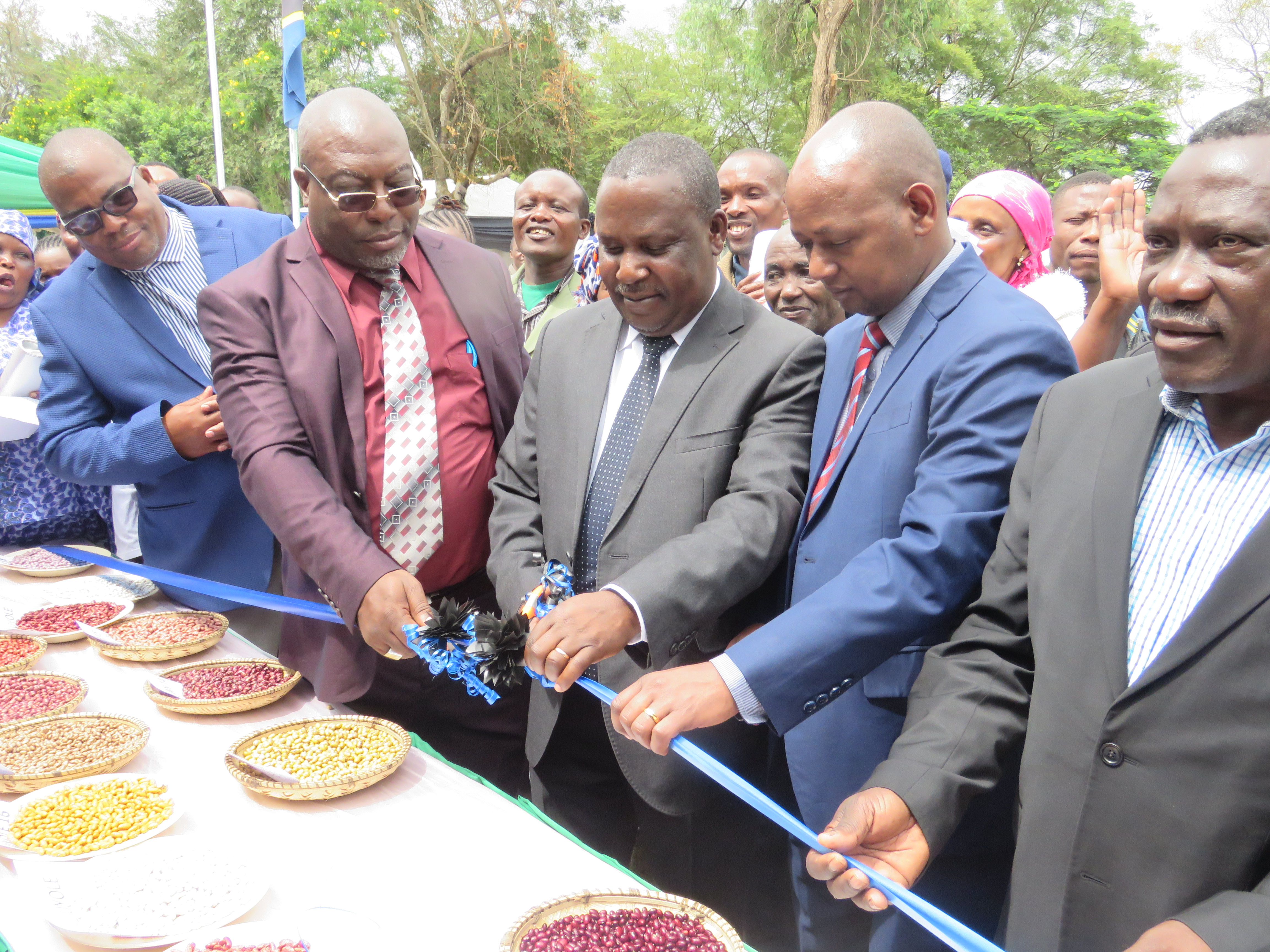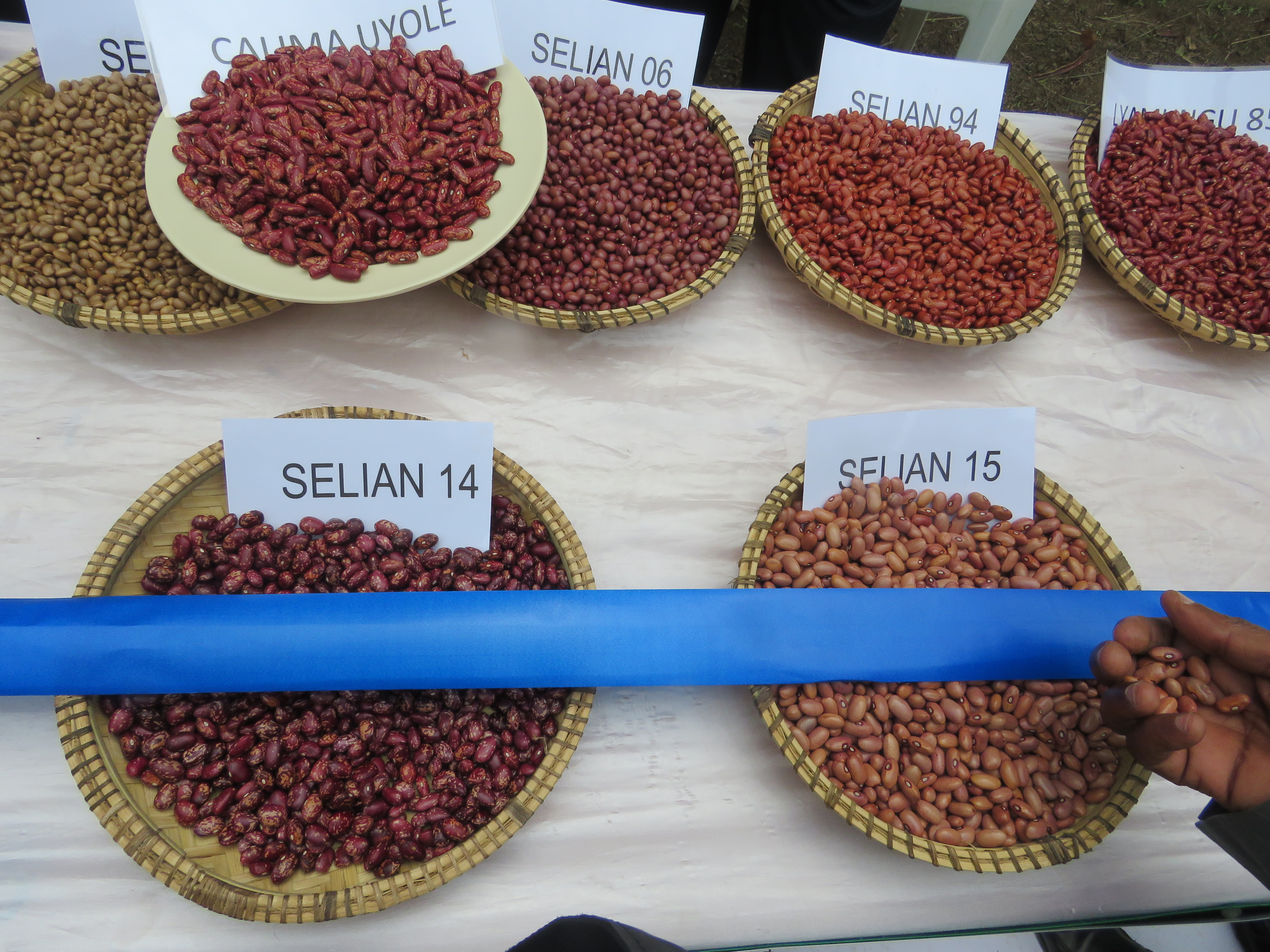Two bean varieties were recently launched in Arusha, Tanzania. These high iron and zinc climbing varieties of beans scientifically known as MAC44 – Selian 14 and RWV1129 -Selian 15 were released by the Selian Agriculture Research Institute (SARI) for the first time.
Tanzania joins other countries in the region such as Burundi, DR Congo, Rwanda, and Uganda who have also released these varieties. The reason for the release of the high-iron beans was informed by the high prevalence of anemia in Tanzania especially among children under five, adolescent girls, and expectant mothers. According to the Tanzania Demographic and Health Survey and Malaria Survey Indicator Survey (TDHS-MIS) 2015-16, anemia prevalence in children between 6-59 months old is at 58% with 26% mildly anemic; 30% moderately anemic; and 2% severely anemic.
In some districts, the statistics are quite appalling with numbers as high as 71% of children. Almost half (45%) of Tanzanian women of reproductive age (15-49 years) are anemic; with 33% being mildly anemic; 11% moderately anemic and 1% severely anemic.
Mr. Ramadhan Ngatoluwa, Ag Director at Selian Agriculture Research Institute, in his welcome remarks commended the seed researchers for the great innovation on the highly nutrients laden bean varieties and thanked the partners and key stakeholders for the support in research processes. He added that the new varieties can be processed easily to other value chain products.

Dr. Charles Tizeba, Minister of Agriculture, Livestock and Fisheries with partners officially unveil the two new bean varieties at Selian Agriculture Research Institute, Tanzania
Speaking at the event, Dr. Charles Tizeba, Minister for Agriculture, Livestock and Fisheries and the chief guest at the event lauded the great efforts researchers have employed in coming up with these high bean varieties. “You are doing commendable work in coming up with these bean seed varieties. I would urge you all to ensure these seeds are available immediately to our farmers.” He urged the researchers to avail the bean varieties on large scale immediately and ensure that farmers have access to them to reduce the anemia prevalence in the country.
Dr. Debisi Araba, Director – International Centre for Tropical Agriculture (CIAT) – Africa, noted the great effort and partnership employed that contributed to the success of the bean variety. “We will ensure that we work with the seed breedes and multipliers to ensure that the seeds reach the farmers’ market in adequate time.” Also present at the event was Dr. Robin Buruchara, Director of Pan African Bean Research Alliance (PABRA) and Seed Systems Specialist, Dr. Jean Claude Rubyogo who added that the new bean varieties will add immensely to the food basket of Tanzania and improve food and nutritional security.
In January, the Ministry of Agriculture through its Directorate of Research and Development in partnership with CIAT released nine new common bean varieties aimed at meeting various farmers’ and consumer needs.
The research and release efforts were led by Selian Agricultural Research Institute (SARI) in partnership with ARI Uyole, ARI Maruku and the International Center for Tropical Agriculture (CIAT) through Pan Africa Bean Research Alliance (PABRA), The Building Nutritious Food Baskets (BNFB) project, Tropical Legume III projects, Swiss Development Corporation (SDC), The United States Agency for International Development (USAID) and The Global Canada Affairs.

